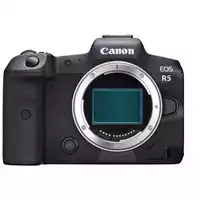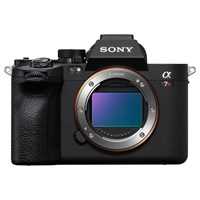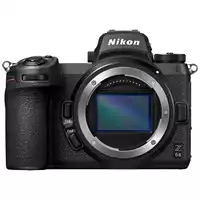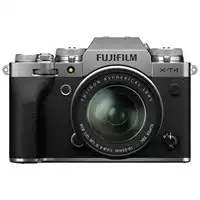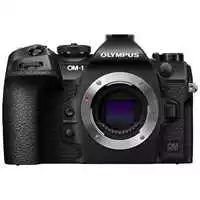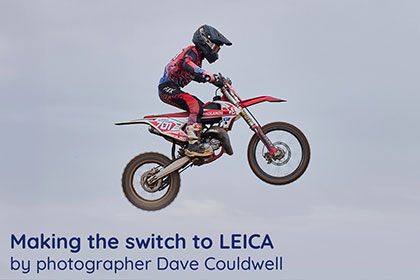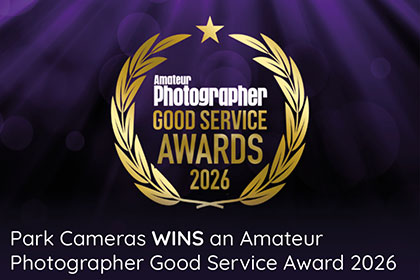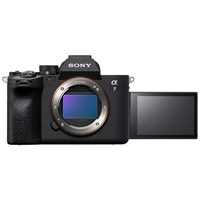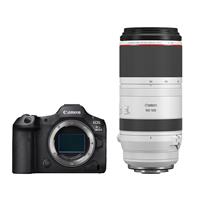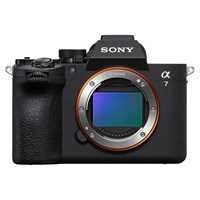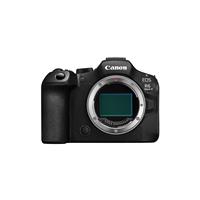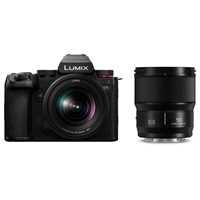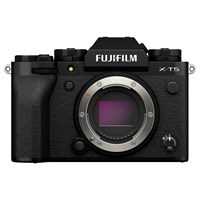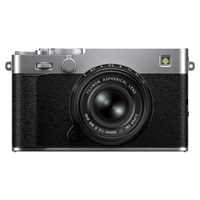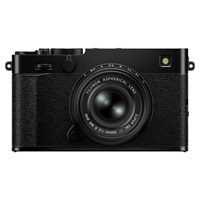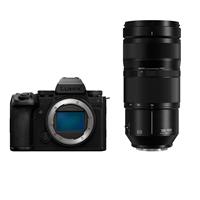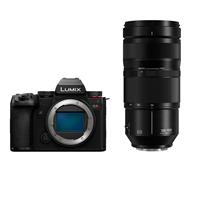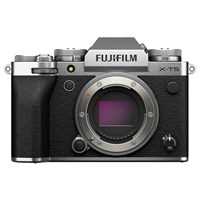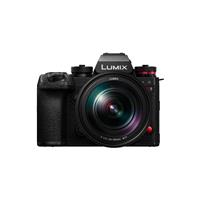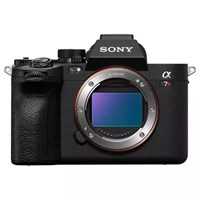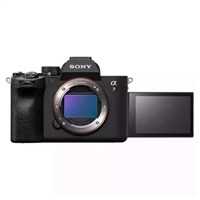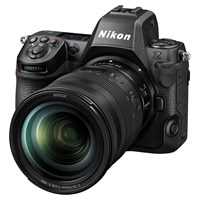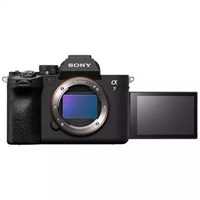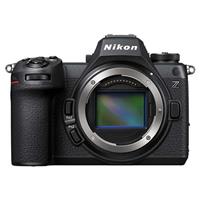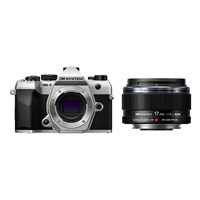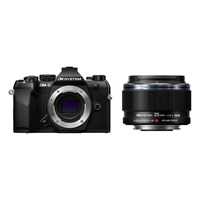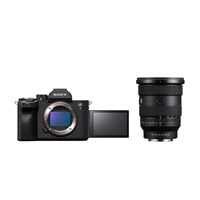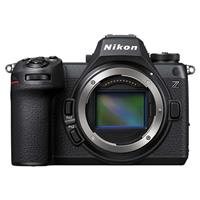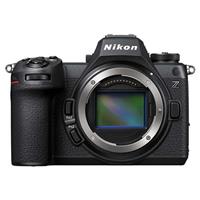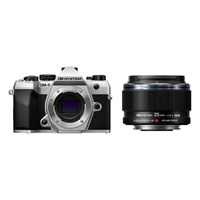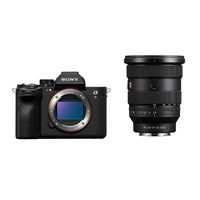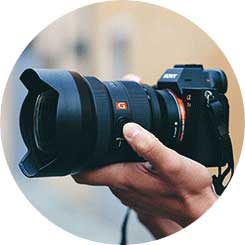- Call us: 01444 237070
- Contact Us
- Stores
- Sign In / Register
Mirrorless Cameras
Our passion for anything related to photography has seen us become an award-winning independent retailer for the world’s best-loved mirrorless camera brands. This enables us to offer customers competitive prices and expert advice, together with the widest selection of mirrorless cameras for everyone. Whether you’re a beginner, enthusiast or professional content creator, you’ll discover the latest camera bodies, kits and compatible mirrorless lenses to fuel your creativity here.
Sony a7 IV Mirrorless Digital Camera Body
Canon EOS R5 Mark II with RF 100-500mm f/4.5-7.1 L Lens Kit
Panasonic Lumix S5 II with 20-60mm and 50mm Twin Lens Kit
Fujifilm X-E5 Camera with XF 50mm f/2 Lens Kit Silver
Fujifilm X-E5 Camera with XF 50mm f/2 Lens Kit Black
Panasonic Lumix S5 II X Black with S 100-500mm f/5-7.1 Lens Kit
Panasonic Lumix S5 II Camera with S 100-500mm f/5-7.1 Lens Kit
Fujifilm X-T5 Camera Body Silver
Panasonic Lumix S1R II Camera with S 24-105mm f/4 Macro Lens Kit
Sony a7R V Mirrorless Camera with 24-70mm f/2.8 GM II Lens
Sony a7 IV with FE 24-70mm f/2.8 GM II camera Lens kit
Nikon Z8 Camera with Z 24-70mm f/2.8 S MkII Lens Kit
Sony a7 IV with FE 70-200mm f/2.8 GM OSS Mark II Camera lens kit
Nikon Z6 III Camera with Z 24-70mm f/2.8 S II Lens Kit
OM System OM-5 Mark II Silver with 17mm f/1.8 II Lens Kit
OM System OM-5 Mark II Black with 25mm f/1.8 II Lens Kit
Sony a7 IV with FE 16-35mm f/2.8 GM II Lens Kit
Nikon Z6 III Camera with Z 14-24mm f/2.8 S Lens Kit
Nikon Z6 III Camera with Z 70-200mm f/2.8 S Lens Kit
OM System OM-5 Mark II Silver with 25mm f/1.8 II Lens Kit
Sony a7R V with FE 16-35mm f/2.8 GM II Lens Kit
Mirrorless cameras have become a popular choice among photographers, videographers and hybrid shooters since the first compact system was developed by Panasonic in 2008. You’ll find countless options for every skill level, from entry-level crop sensors, to full-frame cameras boasting ultra-high resolutions, packed with cutting-edge photo and video features.
Brands continually develop new technology for their mirrorless systems, vying to create the best mirrorless camera on the market. This technology trickles down, resulting in advanced features throughout the entire range of cameras.
Mirrorless camera bodies are now firmly established with three main sensor sizes. The smallest is micro four thirds, designed by Panasonic Lumix and Olympus. Mid-sized APS-C and full-frame cameras are made by Sony, Canon, Nikon and Fujifilm, as well as Leica and Sigma. Deciding between these comes down to personal choice, with customers choosing based on experience, the range of interchangeable mirrorless lenses or video features, ergonomics and portability.
Micro four thirds is the smallest sensor size, used by creators who want highly compact and lightweight equipment.
Crop sensor mirrorless cameras are perfect for beginners or advanced users and are compatible with lighter lenses with a greater reach than equivalent full-frame lenses.
Full-frame mirrorless cameras have a 35mm sensor, which gathers more light, with lower noise and a shallower depth of field.
Whichever route you decide on, we have a great range of new and used cameras, complete with free delivery over £50 and a six-month warranty on second-hand equipment.
Frequently Asked Questions
What is a mirrorless camera?
What is a mirrorless camera?
A mirrorless camera is a compact system camera, which has the mirror and pentaprism removed. Mirrorless cameras use an electronic viewfinder rather than an optical viewfinder. This provides several advantages and results in smaller and lighter camera bodies, better autofocusing, faster shooting rates and more.
Why are mirrorless cameras better than DSLRs
Why are mirrorless cameras better than DSLRs
Mirrorless cameras are better than DSLRs because they can be smaller, lighter and include more advanced features than many DSLRs offer. These include faster burst frame rates in electronic shutter mode, better video with more advanced focus and stabilisation, silent shooting, an electronic viewfinder and even more as technology develops.
Best mirrorless camera for video?
Best mirrorless camera for video?
All brands offer excellent mirrorless cameras for video, with entry-level HD options to professional 4K, 6K and even 8K broadcast cameras. Choose Panasonic Lumix, Olympus or Fujifilm for the most compact bodies and Canon, Nikon and Sony for the highest resolutions. Leica mirrorless cameras also offer refined video capabilities.
Are mirrorless cameras better for video?
Are mirrorless cameras better for video?
Mirrorless cameras are better for video as they tend to be smaller and lighter, with high quality features found even in entry-level cameras. State-of-the-art technology for videographers includes more advanced Phase-Detect autofocus systems with AI subject detection, effective in-body stabilisation and flip-out LCDs.
